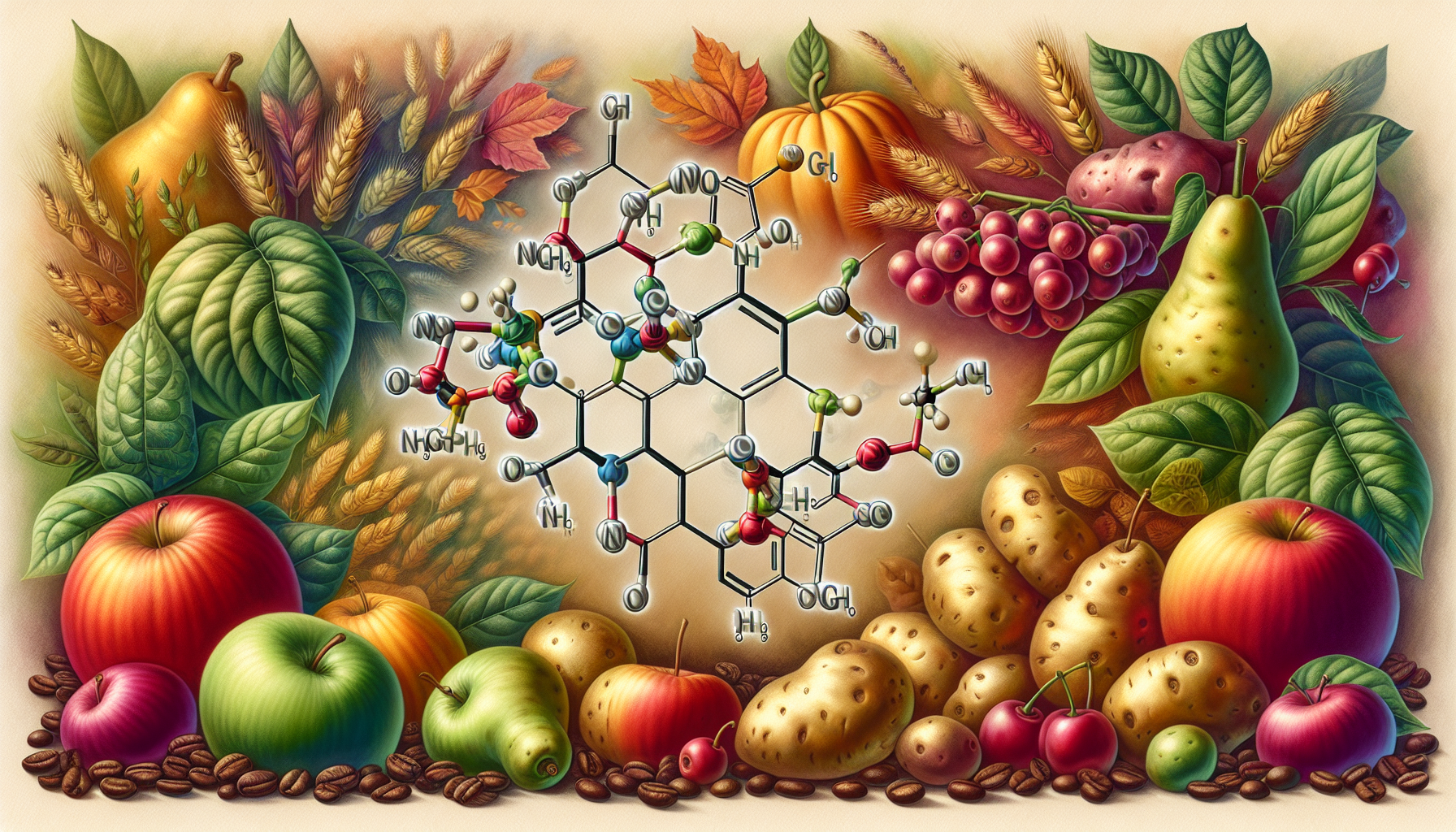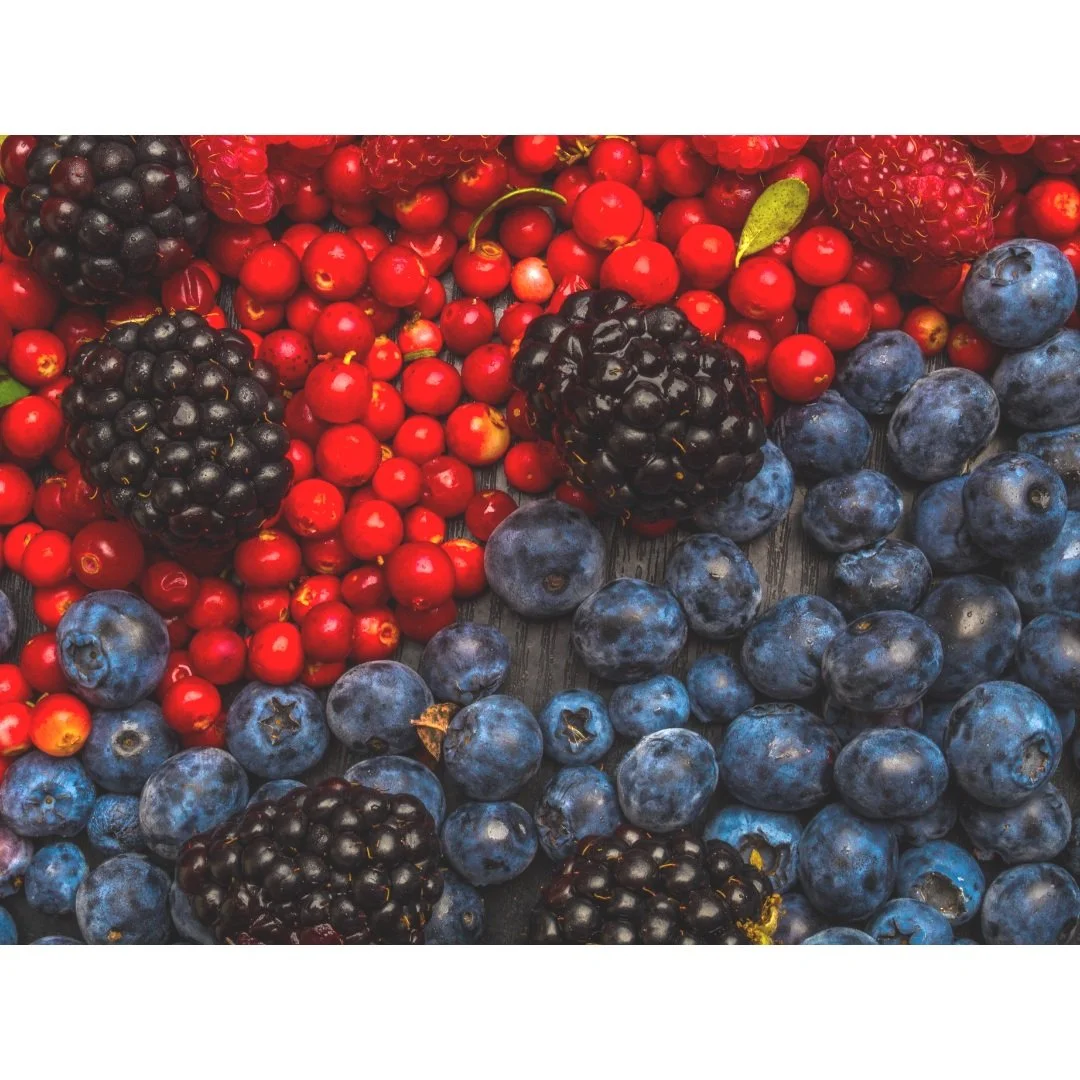How Much Quercetin Per Day: Benefits, Dosage, and Safety
Quercetin is a antioxidant that offers numerous health benefits, including immune support and cardiovascular disease protection. Its absorption is enhanced when combined with other ingredients like vitamin C, and it can be sourced from foods such as apples and onions, though supplements provide higher concentrations. This article highlights the importance of understanding quercetin's benefits, dosage, potential side effects, and interactions with medications, offering valuable insights for those considering supplementation to manage conditions like arthritis, diabetes, or heart disease and general health. It emphasizes the need for personalized guidance from a healthcare provider to ensure safety and effectiveness.
Key Takeaways
The recommended daily dosage of quercetin ranges between 250 mg to 1,000 mg, with a suggested split of 500 mg to 1,000 mg for optimal health benefits.
Quercetin’s effectiveness and required dosage depend on individual health goals, age, and lifestyle factors, emphasizing the need for tailored supplementation.
While generally safe for short-term use up to 1 gram, it is important to be aware of potential interactions with certain medications, making consultation with healthcare providers essential for personalized guidance.
Recommended Daily Dosage of Quercetin
Consumption of quercetin typically falls between 250 mg and 1,000 mg per day, according to clinical recommendations. This dosage range is thoughtfully established to enhance the health benefits of quercetin while keeping potential risks at bay. For individuals seeking an improvement in overall health, it’s often advised to take between 500 mg and 1,000 mg of quercetin daily, divided into several doses.
Research indicates that taking up to a gram (1,000 mg) daily for periods no longer than three months is considered safe without causing toxicity or negative effects. Those intending to harness specific health benefits from quercetin can find comfort in its safety over these short-term durations [1].
Despite the general acceptance of these dosages as being safe for most people, personal medical needs may differ. To tailor the amount more precisely to your unique health objectives and circumstances, consulting with a healthcare provider is recommended.
Factors Influencing Quercetin Dosage
1. Health Goals
Rheumatoid Arthritis: Studies suggest a dose of 500 mg per day for 8 weeks may help reduce inflammation and improve symptoms [2].
Cardiovascular Health: Quercetin doses between 100-730 mg per day for 8-12 weeks can improve blood pressure, cholesterol, and inflammation [3].
Diabetes: Quercetin doses of 500 mg or more per day for at least 8 weeks can lower blood sugar and insulin levels [4].
2. Bioavailability (Absorption)
The form of quercetin you take affects how well your body absorbs it. For example, LipoMicel® quercetin significantly increases blood concentrations.
Some supplements include ingredients like vitamin C or bromelain to help improve absorption, although not all combinations are backed by research [5].
3. Dosage and Safety
Typical Dosage: Quercetin is often taken in doses between 500-1000 mg per day, typically for 8-12 weeks.
High Doses: Higher doses may work better, but we don’t know enough about the long-term safety of taking over 1000 mg per day for extended periods.
4. Existing Health Conditions
Kidney Issues: People with kidney problems should avoid quercetin, especially in high doses, as it could cause kidney damage.
Polycystic Ovary Syndrome (PCOS): Studies have shown that 1 g (1000 mg) per day for 12 weeks can improve metabolic markers in people with PCOS [6].
5. Medication Interactions
Quercetin can interact with certain medications. It may enhance the effects of chemotherapy drugs like doxorubicin and cisplatin but can reduce the effectiveness of others [7].
It may also increase the effectiveness of corticosteroids, leading to longer effects in the body [8].
6. Dietary Intake
You likely get some quercetin naturally from foods like apples, onions, and berries. The average diet may provide about 5-40 mg of quercetin daily, but a nutrient-dense diet could offer up to 500 mg [9].
These factors should be considered when deciding on the right quercetin dosage for your needs. Always consult a healthcare provider before starting supplementation, especially if you have health conditions or take medications.
Clinical Studies on Quercetin Dosage
Clinical investigations provide important data regarding the optimal dosages of quercetin for various health benefits. For example, a study found that consuming 1 gram of quercetin each day over 28 days did not notably influence cardiovascular risk factors among healthy participants with normal cholesterol levels, suggesting that the advantages of quercetin may be more pronounced in individuals who already face health challenges [10].
A comprehensive meta-analysis encompassing 16 randomized controlled trials concluded that intake of quercetin supplement considerably lowered both total and LDL cholesterol measurements. This underscores its potential role in supporting cardiovascular wellness, especially for those with high cholesterol issues [11].
Evidence suggests taking just 150 mg daily dosage boosts six-week results (lowered systolic pressure) which is specifically helpful when managing hypertension without causing detriment to renal or hepatic functions. Impactful beneficial effects against metabolic syndrome are also noted including reduced oxidized low-density lipoprotein levels after continuous consumption on identical amount aforementioned term indicating capability reducing force has efficiency within context elevated blood pressures due condition [12].
Related to Quercetin's anti-viral effects, despite studies showing no significant reduction in upper respiratory tract infection rates from doses between 500 mg to 1,000 mg daily among patients using supplemental quercetin, an independent trial involving COVID-19 patients suffering severe symptoms observed favorable outcomes when they received a regimen combining antiviral medications and an additional supplementation of quercetin at the rate of one thousand milligrams per day [13].
Safety and Potential Side Effects
When considering quercetin supplementation, it is essential to be aware of the recommended dosage and potential health considerations. For short-term use, quercetin is generally safe when taken in doses of up to 1 gram per day for up to three months. However, long-term use of high doses is not well-studied, so it’s crucial to consult with a healthcare professional before using quercetin over an extended period. People with kidney problems should avoid taking quercetin as it may worsen their condition, especially at higher doses. Quercetin can also interact with medications, affecting how they are metabolized by the liver. It may enhance the effects of blood thinners, increasing the risk of bleeding, and may alter the effectiveness of antihistamines and antibiotics [14]. Therefore, it’s important to consult with a healthcare provider before starting quercetin, particularly if you have any underlying health conditions or are taking medication. Your doctor can guide you on the appropriate dosage to ensure safety and effectiveness.
Quercetin in Food vs. Supplements
Supplementation with quercetin delivers a potent dose of this beneficial compound that surpasses what is typically achievable through dietary sources alone. An average Western diet provides only 0 to 30 milligrams of quercetin daily, significantly less than the amounts found in supplements. For instance, to match the 40 mg found in a standard quercetin in dietary supplement form, one would need to consume approximately eight and a half cups of low-quercetin products [15]. This stark contrast highlights how quercetin supplements can conveniently meet daily requirements for this vital flavonoid.
The impact of dietary patterns on the benefits derived from additional quercetin cannot be overstated. Individuals who consume a diet rich in natural dietary quercetin may find that they require smaller supplemental doses . Incorporating foods high in these dietary flavonoids—such as apples, onions, and berries—into one’s diet can enhance overall levels of this flavonoid in the body, creating a synergistic effect when combined with direct supplementation.
How to Take Quercetin Supplements
Dosage:
Typical Dose: Most people take 500 to 1,000 mg per day, often split into two doses (e.g., 250-500 mg in the morning and evening).
Short-Term Use: It is generally safe to take up to 1 gram (1,000 mg) daily for up to three months [16].
Forms:
Quercetin comes in capsules, tablets, or powders. Choose a form that you find easy to take.
Timing:
Take quercetin with meals to improve absorption and reduce the chance of stomach upset. It’s best taken with food that contains some fat.
Safety:
Quercetin is usually safe, but high doses (over 1 gram) may cause side effects like headaches or upset stomach.
The correct dose of these dietary flavonoids can vary widely, depending on personal health issues and concurrent therapies. The quercetin reduces blood pressure and adjustments in the dosage might be necessary because of possible interactions with various medications or existing health problems like high blood pressure when comorbidities are present.
There is a possibility that combining quercetin with specific prescription drugs could heighten their impact or adverse reactions, which requires vigilant observation. For instance, blood thinners’ effectiveness may be amplified by quercetin, raising the risk of excessive bleeding.
Thus, it’s vital to seek advice from healthcare professionals before commencing any regimen involving quercetin supplementation. This step is particularly important if you’re already using certain medications or contending with underlying medical conditions.
Health Benefits of Quercetin
The flavonoid quercetin is acclaimed for its broad spectrum of health benefits, which encompass antioxidant capabilities, the mitigation of chronic inflammation, and treating high blood pressure. Acting as a formidable scavenger of free radicals, it provides cellular protection against oxidative harm by neutralizing these unstable molecules.
Studies indicate that quercetin has shown impressive efficacy in decreasing markers such as TNF-alpha and IL-6 linked to inflammation. Thus displaying its significant anti-inflammatory properties. Such attributes render it highly beneficial in alleviating discomfort associated with rheumatoid arthritis and inflammatory arthritis.
Quercetin plays an essential role in other health benefits like safeguarding immune cells and cardiovascular wellness and may contribute to averting heart disease while enhancing the functionality of blood vessels. In women grappling with PCOS (Polycystic Ovary Syndrome), supplementation involving quercetin has demonstrated progressions in metabolic indicators pertinent to insulin sensitivity – this advancement also concerns the management of blood sugar levels related to quercetin glycosides.
Special Considerations for High Doses
Clinical settings might utilize high doses of quercetin for particular health issues. For instance, in individuals with diabetic kidney disease, a combination therapy involving 1,000 mg of quercetin and 100 mg of Dasatinib has been shown to lower inflammation markers in just 11 days [17].
The long-term implications and safety profile associated with elevated doses of quercetin remain undetermined. Due to limited research on its use during pregnancy and breastfeeding periods, using quercetin should be avoided.
In short-term scientific research, taking large quantities of quercetin seems safe — up to a maximum intake of one gram per day over stretches as long as three months. While there may be advantages from substantial dosages under certain medical scenarios, it’s vital to balance these against possible dangers and seek advice from healthcare practitioners.
Sources of Quercetin
Green tea, red wine, and certain fruits and vegetables, such as apples, onions, parsley, and citrus fruits, are key sources of quercetin. Consuming larger amounts of quercetin-rich foods like onions and apples can significantly boost your intake of this beneficial compound. Dark berries, including blueberries and blackberries, are also excellent choices for increasing quercetin levels in your diet.
On average, individuals typically obtain between 5 to 100 mg of quercetin daily from fruits and vegetables, although the exact amount may vary depending on personal dietary habits. Those who maintain a healthy, nutrient-rich diet filled with these foods can naturally increase their quercetin intake, thereby enjoying the health benefits associated with this powerful antioxidant.
Summary
To summarize, quercetin stands as a formidable flavonoid offering an array of health advantages such as its antioxidant properties and anti-inflammatory effects, bolstering cardiovascular health, and possibly enhancing metabolic indicators. While individual wellness requirements dictate the suitable daily intake of quercetin—usually between 250 mg to 1 gram—it is deemed safe for consumption in doses up to 1 gram daily over brief periods.
The precise amount of quercetin one should take hinges on factors like age, unique wellness objectives, lifestyle choices, and nutritional patterns. Though research studies have shed light on the potential benefits that come with quercetin use for diverse medical conditions, there’s still ambiguity regarding the long-term safety implications associated with consuming it at elevated dosages. Consequently, seeking advice from healthcare professionals prior to commencing any regimen involving quercetin supplementation is imperative, particularly for individuals already managing health issues or those who are under medication.
Opting either for natural sources or supplemental forms of obtaining your dose of this beneficial compound requires knowledge about proper administration and possible drug interactions. Thanks to contemporary advances such as Phyto-PTM supplement options, harnessing optimal well-being through augmented accessibility to this efficacious substance has been simplified.
Frequently Asked Questions
What is the recommended daily dosage of quercetin?
Typically, the suggested daily intake of quercetin is within a range of 250 milligrams to 1 gram. Research most commonly supports taking between 500 milligrams and 1 gram in separate doses throughout the day.
Regarding usage that extends no longer than three months, consuming as much as one gram each day has been deemed safe.
Can quercetin be taken long-term?
It is critical to seek advice from a healthcare professional before opting for extended consumption of quercetin, as the safety of its use over an extended period remains uncertain, particularly with regards to the effects of taking it in very high doses.
Quercetin may pose risks when taken for long durations without proper medical guidance due to potential unknown consequences associated with higher dosage levels.
What are the potential side effects of quercetin?
Typically, quercetin is accepted by the body without issues, but for those with existing renal conditions, it can exacerbate kidney problems. It has the potential to affect how blood thinners and antibiotics work.
It’s wise for individuals worried about these possible adverse health effects to think through them thoroughly and seek advice from a medical expert.
How does quercetin interact with other medications?
Taking quercetin supplements may impact the effectiveness of prescription medications by either amplifying or diminishing their effects due to its ability to obstruct liver enzymes that metabolize drugs.
Before initiating supplementation with quercetin, it is critical to seek advice from healthcare professionals, especially if you are currently on certain medications.
What foods are high in quercetin?
Ingesting items such as apples, onions, parsley, citrus fruits, dark cherries and berries along with green tea and red wine can substantially increase your intake of quercetin.
By adding these foods to your meals regularly, you will boost the amount of quercetin in your diet.
Disclaimer
The information provided in this article is for educational and informational purposes only and is not intended as medical advice. While we work diligently to provide accurate and up-to-date information, we make no representations or warranties of any kind, express or implied, about the completeness, accuracy, reliability, suitability, or availability with respect to the content. The information contained herein should not be used as a substitute for the advice of an appropriately qualified and licensed physician or other healthcare provider. The suggestions and insights should not be used for diagnosing or treating a health problem or disease, or prescribing any medication. Always seek the advice of your physician or other qualified health provider with any questions you may have regarding a medical condition or treatment and before undertaking a new health care regimen. Never disregard professional medical advice or delay in seeking it because of something you have read on this site.
References
Additional Reading
Additional Resources
Related Products
Phyto-P™ is a dietary supplement esteemed for its trailblazing contribution within the realm of polyphenols, compounds celebrated for their antioxidant capabilities. Utilizing advanced high-pressure liquid chromatography, Phyto-P™'s antioxidant levels and potency are meticulously confirmed through exhaustive examination.
Research indicates that compared to other prominent dietary supplements on the market, Phyto-P™ boasts a superior concentration of antioxidants. Its composition encompasses essential polyphenols like dietary flavonoids, anthocyanins, chicoric acid, and chlorogenic acid, as well as an array of quercetin variants [Zhang].
These distinct polyphenols are instrumental in providing the notable antioxidant and anti-inflammatory effects associated with Phyto-P™. Such attributes offer significant potential health benefits which include bolstering cardiovascular wellness, fortifying immune responses and safeguarding against oxidative damage.













